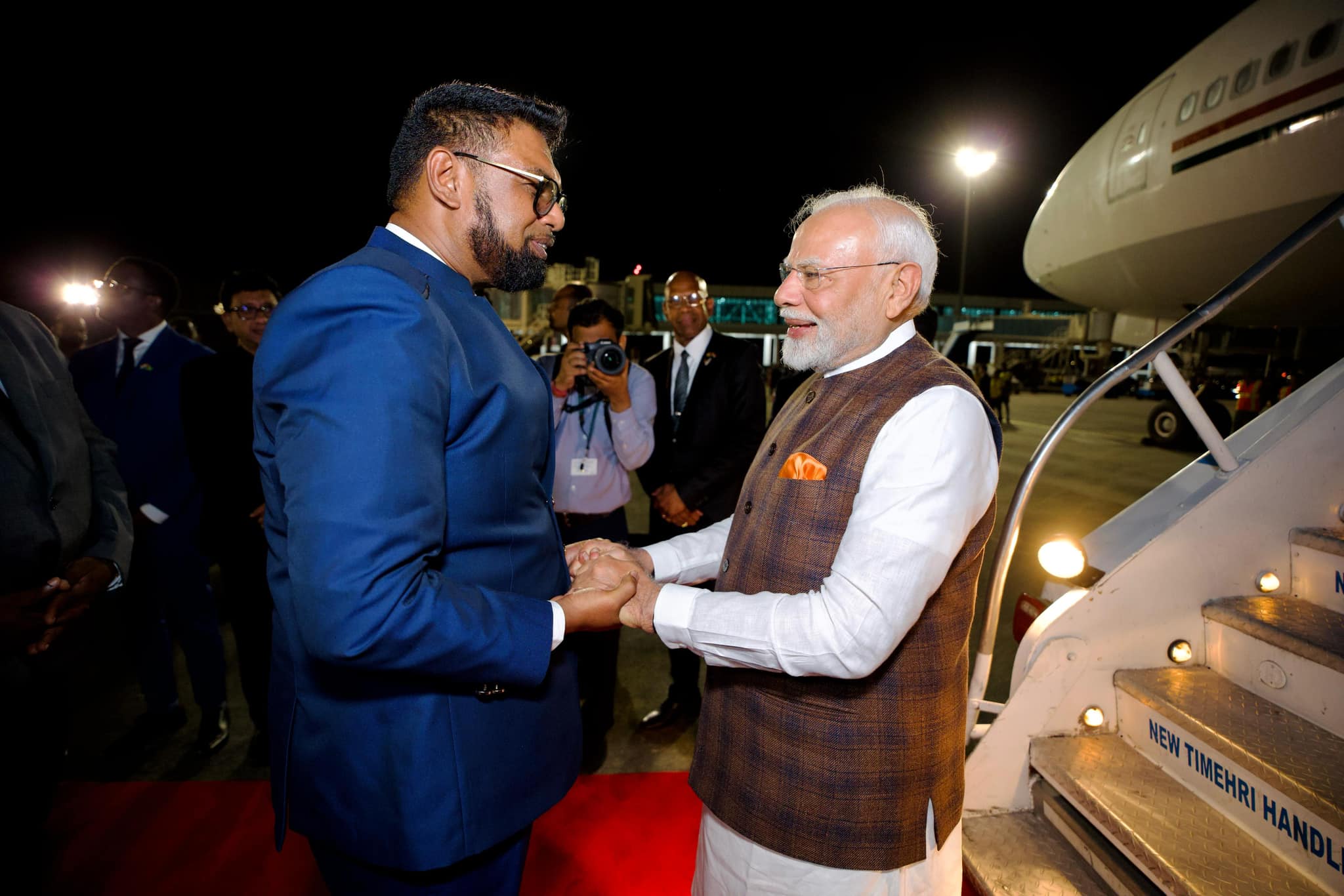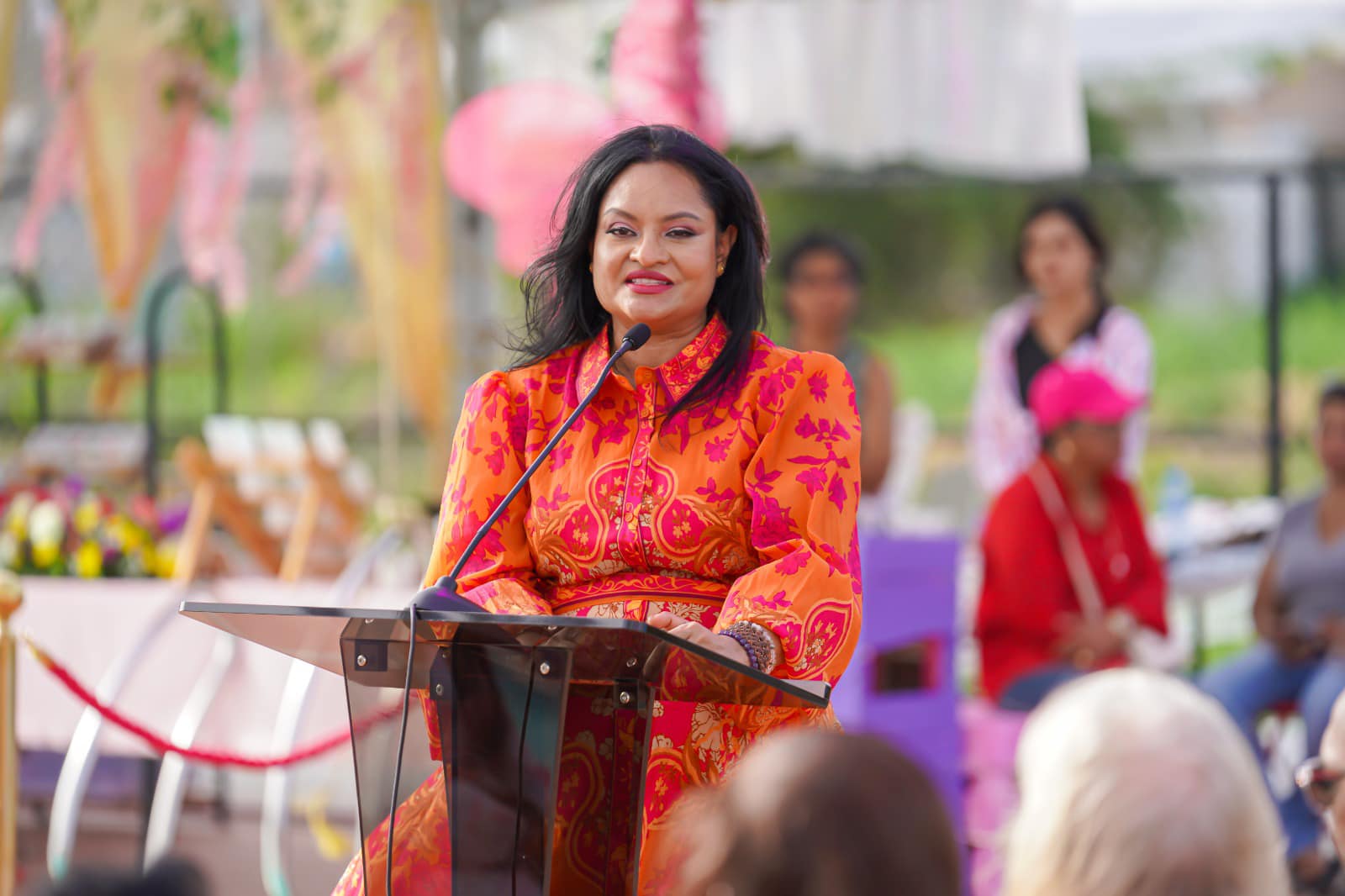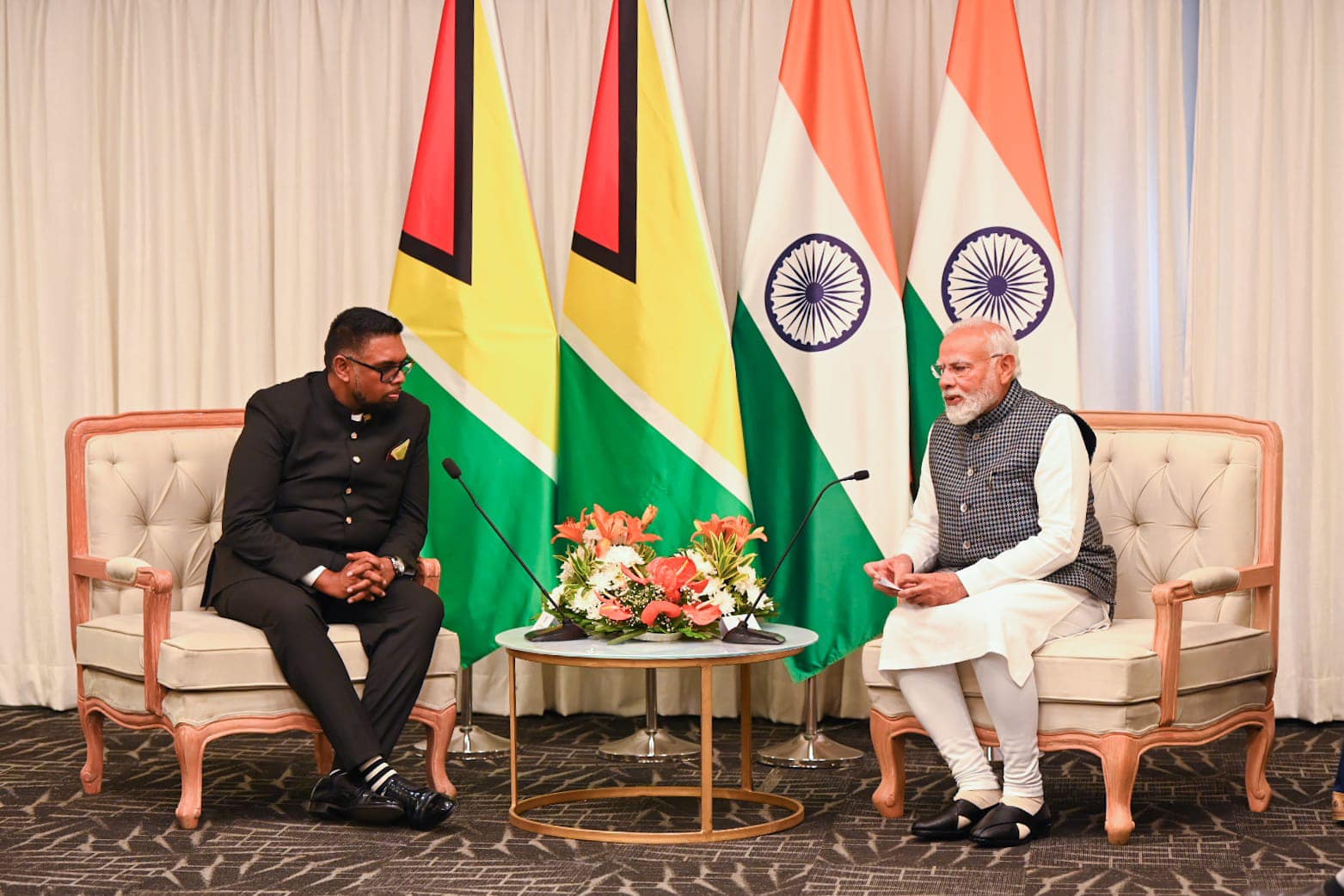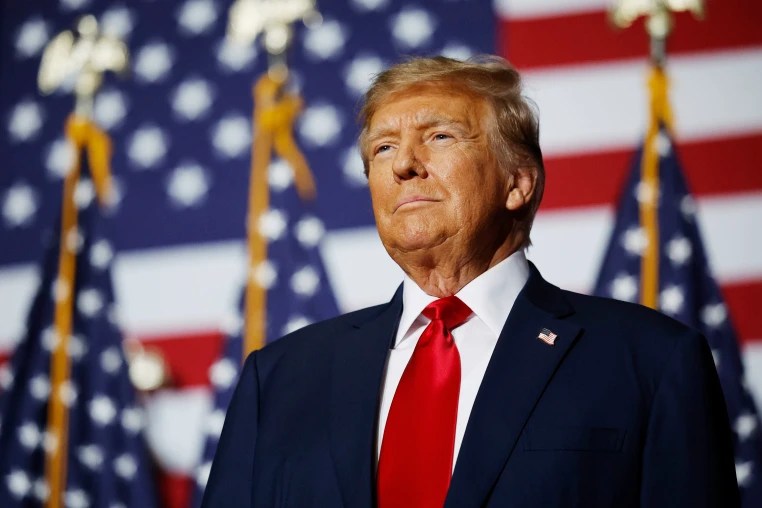Ali, Modi advance talks on military defence cooperation, energy, healthcare, infrastructure
 20 November 2024
20 November 2024


President Dr. Mohamed Irfaan Ali and Prime Minister of India Narendra Modi have held extensive discussions on bilateral, regional and multilateral issues of mutual interest, demonstrating their shared commitment to bolstering their bilateral relations as well as advancing cooperation at the multilateral level.
The two leaders reaffirmed their commitment to strengthening partnership between the two countries and expressed satisfaction with the work of the joint working groups in the areas of ICT, defence, agriculture, infrastructure, energy, health and ayurveda and wellness, and human resources and capacity building.
They welcomed the signing of bilateral Agreements/MOUs in the fields of hydrocarbons, health, pharmaceuticals, broadcasting, culture and agriculture, aimed at further strengthening bilateral cooperation and collaboration between Guyana and India.
The two leaders emphasised the importance of energy cooperation in achieving sustainable development goals and committed to a fair and equitable energy transition. They agreed to the strengthening of bilateral hydrocarbon trade and cooperation in petroleum products, sharing of best practices, technology transfer, and investment in the gas-to-energy project, fertiliser production, mining collaboration and deep-water port infrastructure, and in clean energy initiatives.
They reaffirmed the importance of creating partnerships aimed at developing solar energy and committed to continued collaboration bilaterally and through the International Solar Alliance to promote the development of renewable energy and building capacity in the field of solar technology applications, with a view to enhancing energy access and ensuring energy security.
The two sides commended the formation of the Global Biofuels Alliance (GBA) and recognized biofuels as a sustainable, low-carbon option to achieve decarbonisation commitments and deliver greater economic and social development for the peoples of both countries.
The two leaders recognised the vital role technology plays in economic growth and social development and pledged continued collaboration in the areas of digital transformation governance and capacity building.
The two leaders agreed to enhance cooperation in defence and security, recognising the importance of a stable and secure environment. Guyana and India committed to increasing joint exercises, training and capacity building, information sharing, joint projects and collaboration in counter-terrorism efforts. They decided to focus on defence industrial cooperation, particularly in armaments and infrastructure development.
They acknowledged the crucial role of the agricultural sector in advancing food security and nutrition and expressed a shared commitment to strengthening collaboration. Emphasis will be placed on exchanging information technology and expertise to enhance the efficiency of the agriculture and allied sectors. This collaboration aims to promote climate resilient and precision agriculture, foster Digital Public Infrastructure and create a supportive ecosystem for farmers, particularly smallholders.
Recognising the critical role of infrastructure in economic growth, the two leaders agreed to promote collaboration on urban infrastructure projects which would enhance connectivity and promote sustainable development, focusing on transportation, smart city initiatives and affordable housing.
The two leaders underscored their commitment to working together to enhance the provision of healthcare through sharing of expertise, especially in advancing telemedicine and capacity building in training health workforce.
The leaders welcomed the establishment of the Guyana/India Chamber of Commerce as a platform for intensifying collaboration between the private sectors of Guyana and India and for promoting trade and investment. They also welcomed, in this context, holding of the 9th Edition of the CII India-LAC Business Conclave held in New Delhi in August 2023, exchange of trade delegations and organization of information webinars.
They highlighted the vital role of capacity building in sustainable development and committed to continued collaboration through the Indian Technical and Economic Cooperation (ITEC) Programme in various fields including information technology, agriculture, and healthcare. They committed to the expansion of the ITEC mechanism to strengthen human resource development.
The two sides acknowledged the urgency of addressing climate change and its global multidimensional challenges. They acknowledged that both countries were vulnerable to its impacts and pledged to cooperate on initiatives aimed at mitigating climate change, reducing carbon emissions, and assisting in the conservation of biodiversity.




